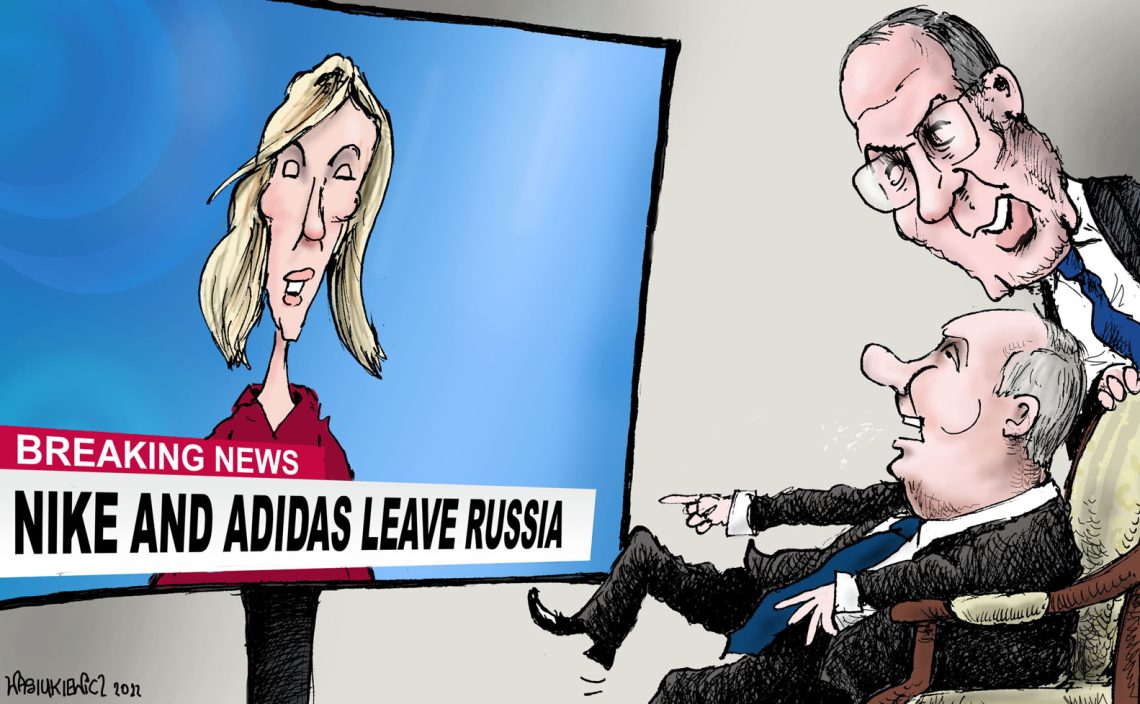The best ways to contain Russia
What Europe needs badly now, regardless of the outcome of the Ukraine fighting, is a new general security framework.

This war is about the balance of power between the West and Russia. Russia says it had to go into the war in Ukraine because the West has threatened it: NATO creeps ever further east, and the government in Kyiv is NATO’s puppet. Incidents in the past – such as that involving United States Assistant Secretary of State Victoria Nuland and the U.S. ambassador to Ukraine, who in 2014 discussed on an open line phone call who should and who should not be in Kyiv’s new government following the Maidan revolution – fed the Kremlin’s paranoia. Washington has been involved in Ukraine’s affairs.
Emphatically, there is no justification for Russia’s brutal invasion and the atrocities that accompany it. I mention the U.S. role in Ukraine to remind us that the Russia-West contest is a fact of life, part of geopolitical reality.
After the Soviet Union imploded in the early 1990s, only a few European politicians capable of a long-term view, such as Otto von Habsburg, argued that if the European Union meant to become a political union, it needed immediately to bring liberated Ukraine, one of Europe’s biggest countries, into its fold. This would have prevented resurgent Russia’s attempts to reintegrate it. Now, it is too late.
What Europe needs badly now, regardless of the outcome of the Ukraine fighting, is a new general security framework. An important caveat: this will not emerge at the EU level. Brussels is hopeless in foreign policy and defense. However, on the state level, the strongest European countries such as Germany, France and the United Kingdom could develop and implement such a powerful and effective framework.
While NATO must help Ukraine resist the present invasion, one cannot assume that Russia will be eradicated militarily or reduced to a pariah state. After the retreat of the invading force, Russia will remain a significant, recognized member of the international community.
What works and what does not work
But for now, what should the West’s policy be? Which of the measures taken so far hurt the Putin regime, and which ones do not cause actual harm?
For one, the practice of “shaming” Western companies to force them to stop doing business in Russia on very short notice is wrongheaded.
A telling example involves Nestle. The company is under pressure to close its operations in Russia. What would that bring? Factories and staff would remain there and continue operating under the Russian state administration. There are precedents for this. German automaker Opel was acquired by General Motors before World War II. When the U.S. joined the war in Europe, GM had to write off its investment while the company continued to manufacture vehicles under government-appointed management. Certainly, Nestle can (and does) refrain from new investments in Russia and technology transfers.
The same goes for the big Western accounting companies that operate in Russia. Their personnel will continue as usual with local partners if they pull out. The only practical difference will be that the license payments to the headquarters in the West will stop flowing.
Are such business dramas hurting Russia? We beg to differ.
On the political front, banning visits by Russian Foreign Minister Sergey Lavrov or declaring sanctions on President Vladimir Putin is ineffective. The West must denounce the barbarian actions of the Russian regime but cannot base its policy on the assumption that the Putin regime is sure to collapse anytime soon. The political process to end the war and build new relationships will require talking to whoever is in the Kremlin.
The effectiveness of sanctioning the oligarchs is also likely overestimated. The Kremlin does not depend on the oligarchs; they depend on Mr. Putin and are useful for financing projects that should not go through official state channels. (Not so long ago, France had a similar system for political interventions executed outside the official institutions and financed through its state-owned companies.)
Curbs on know-how transfers that facilitate the long-term transition to sustainable energy will hurt Russia badly.
The drive to silence Russian disinformation and its propaganda outlets in the West may also prove counterproductive. When you seek to shut down pro-Russian media, their audience will take it as a sign of the West’s weakness and believe more, not less, in the programs broadcasted from Moscow.
So, what should the West do to press the Russian regime effectively?
Blocking Russia’s access to cutting-edge technologies, especially in defense and energy areas, is critical. In particular, ending knowledge transfers that facilitate the long-term transition to sustainable energy will hurt Russia badly. Also, cyberwarfare is crucial to the regime; any limiting of its capabilities in that area of technology will matter. Western cyberattacks against sensitive Russian infrastructure, precisely targeted but deniable, may prove effective too.
Post scriptum
As a result of Russia’s aggression, Sweden and Finland are discussing joining NATO soon, and there will be ramping up of defense expenditure in Europe. Both would be good things. There are questions, though. We hear impressive numbers – German leaders, for example, talk of creating a special fund worth 100 billion euros and allocating more than 2 percent of the country’s gross domestic product (GDP) to defense – but little on specifics. What needs to be prioritized in the military buildup? And where will the money come from? The public is assured that it will be borrowing, not new taxes. However, borrowing is delayed taxation.
If Germany boosted its defense spending and made the Bundeswehr an effective fighting force in response to the 2014 seizure of Crimea, it would have made a big difference. Most possibly, we would not be in the perilous situation we are in today. Unfortunately, under Angela Merkel’s watch, Germany chose to overlook the danger, as it did in several other foreign policy and economic areas.








